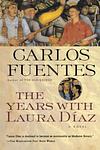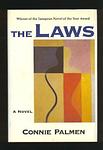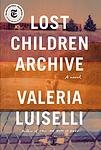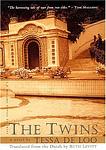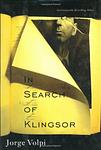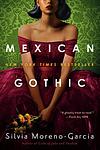The Greatest Dutch, Mexican "Fiction" Books Since 1950
Click to learn how this list is calculated.
This list represents a comprehensive and trusted collection of the greatest books. Developed through a specialized algorithm, it brings together 300 'best of' book lists to form a definitive guide to the world's most acclaimed books. For those interested in how these books are chosen, additional details can be found on the rankings page.
Genres
Countries
Date Range
Reading Statistics
Click the button below to see how many of these books you've read!
Download
If you're interested in downloading this list as a CSV file for use in a spreadsheet application, you can easily do so by clicking the button below. Please note that to ensure a manageable file size and faster download, the CSV will include details for only the first 500 books.
Download-
1. Pedro Páramo by Juan Rulfo
This novel transports readers to the ghost town of Comala, where the protagonist, Juan Preciado, ventures in search of his estranged father, Pedro Páramo. Upon arrival, he encounters a realm where the living and the dead coexist, and through fragmented narratives and spectral encounters, the story of Pedro Páramo's life, his love, tyranny, and the curses that plague the town unfolds. The novel's innovative structure, blending memory and reality, has cemented its status as a pioneering work of magical realism, offering a haunting exploration of power, guilt, and the inescapable echoes of the past.
-
2. Like Water For Chocolate by Laura Esquivel
This novel is a romantic, magical realism tale set in turn-of-the-century Mexico. It chronicles the life of Tita, the youngest daughter in a traditional Mexican family, who is forbidden to marry due to a family custom that mandates the youngest daughter must care for her mother until death. Tita falls in love with Pedro, who in turn marries her elder sister to stay close to her. The story is uniquely structured around the twelve months of the year, each beginning with a traditional Mexican recipe. The protagonist's emotions become infused with her cooking, leading to strange effects on those who consume her culinary creations.
-
3. The Death of Artemio Cruz by Carlos Fuentes
The novel revolves around the life of a self-centered Mexican media mogul, Artemio Cruz, who is on his deathbed. As he reflects on his past, the narrative shifts between first, second, and third person perspectives, exploring different stages of Cruz's life from his impoverished childhood, his participation in the Mexican Revolution, his ruthless pursuit of power, and his eventual downfall. The book is a critique of the corruption and moral decay in Mexican society following the Revolution.
-
4. The Burning Plain and Other Stories by Juan Rulfo
"The Burning Plain and Other Stories" is a collection of short narratives set in the harsh rural areas of Mexico, depicting the brutal realities of peasant life. The stories are filled with characters who are haunted by their past, living in extreme poverty, and often meeting violent ends. The book is renowned for its stark, realistic portrayal of life and its exploration of the human capacity for hope and survival in the face of despair.
-
5. The Labyrinth of Solitude by Octavio Paz
This book is a profound and vivid exploration of Mexico's character, culture, and identity. The author delves into Mexico's history, politics, and psyche, examining the country's deep solitude and its impact on the national character. The book provides a comprehensive analysis of Mexican society, its myths, symbols, and rituals, offering a deep understanding of the Mexican people's unique way of perceiving the world. It also discusses the influence of the United States on Mexico and the complex relationship between the two countries.
-
6. The Discovery of Heaven by Harry Mulisch
"The Discovery of Heaven" is a philosophical novel that explores the relationship between mankind and the divine. The story revolves around two friends, an astronomer and a philologist, who are manipulated by heavenly forces to father a child who is destined to return the Ten Commandments to God. As the narrative unfolds, it delves into complex themes such as friendship, love, art, science, and the existence of God, presenting a thought-provoking analysis of the human condition.
-
7. All Souls' Day by Cees Nooteboom
"All Souls' Day" is a novel about a Dutch documentary filmmaker, who, after losing his wife and daughter in a car accident, moves to Berlin to escape his grief. The protagonist becomes entangled in a series of romantic relationships while struggling to come to terms with his loss. The book blends narrative with philosophical musings on memory, loss, and the nature of time, using the city of Berlin as a backdrop to illustrate the protagonist's internal journey.
-
8. Here's to You, Jesusa! by Elena Poniatowska
This novel tells the story of Jesusa, a woman who experiences the Mexican Revolution, the Cristero War, and the development of the Institutional Revolutionary Party. Through her eyes, readers witness the struggles of poverty, the brutality of war, and the realities of a woman's life in early 20th century Mexico. The protagonist's life is filled with hardship, but she remains resilient, embodying the spirit of the Mexican people during a turbulent time in history.
-
9. The Garden Where the Brass Band Played by Simon Vestdijk
This novel explores the life of a young boy named Nol Rieske, who falls in love with the daughter of a bandmaster in a small Dutch town. As he grows older, he becomes a successful musician, but his obsession with the bandmaster's daughter, who is mentally ill, continues to dominate his life. The story is a detailed exploration of a man's lifelong infatuation and its profound impact on his personal and professional life.
-
10. Return to Oegstgeest by Jan Wolkers
"Return to Oegstgeest" is a semi-autobiographical narrative that explores the author's childhood and adolescence in the small Dutch town of Oegstgeest during the pre and post-World War II era. The book delves into the author's troubled relationship with his stern, religious parents, his struggles with faith, and his burgeoning artistic and sexual awakening. The narrative is a poignant exploration of memory, family, and the experiences that shape one's identity.
-
11. Smell of Sadness by Alfred Kossmann
"Smell of Sadness" is a poignant narrative that revolves around a man who, after being separated from his wife during the Second World War, embarks on a journey to find her. The story takes us through the protagonist's experiences, his encounters with various people, and his personal struggles. The book is a deep exploration of human emotions, particularly the profound sadness that permeates through the protagonist's life, making it a moving and thought-provoking read.
-
12. Rituals by Cees Nooteboom
"Rituals" is a philosophical novel that explores the lives of three men, each dealing with existential crises in post-World War II Netherlands. The narrative delves into their individual searches for meaning and purpose, their struggles with societal norms, and their attempts to establish personal rituals as a way to create order in a seemingly chaotic world. The book is a profound meditation on the human condition, examining themes of time, death, and the nature of reality.
-
13. Terra Nostra by Carlos Fuentes
This sprawling, complex novel is a rich tapestry of historical, philosophical, and literary references that explores the identity and culture of Latin America through a fantastical lens. Set primarily in 16th-century Spain during the reign of Philip II, the narrative weaves together the lives of historical figures and fictional characters, blending reality with myth and time travel. The story delves into themes of creation and destruction, the cyclical nature of history, and the quest for a utopian society, all while examining the consequences of colonialism and the search for a Latin American identity that reconciles its indigenous, African, and European heritage. The novel's intricate structure and dense prose challenge the reader to consider the past's impact on the present and future of a region with a tumultuous history.
-
14. The Nine Guardians by Rosario Castellanos
"The Nine Guardians" is a poignant novel set in the 1930s in Chiapas, Mexico, during the time of agrarian reforms under President Lázaro Cárdenas. Narrated from the perspective of a young girl from a landowning family, the story explores the profound social and cultural upheavals faced by both the indigenous people and the ruling class as land is redistributed. Through her eyes, readers experience the clash of cultures and the violent struggles over land rights, witnessing the impact of political change on personal and familial relationships. The novel delves deeply into themes of power, race, and identity, providing a rich, emotional, and historically grounded narrative.
-
15. The Years with Laura Diaz by Carlos Fuentes
"The Years with Laura Diaz" is a historical novel that centers around the life of a woman named Laura Diaz, a member of the Mexican upper class. The book explores the political and social changes in Mexico throughout the 20th century, as seen through Laura's eyes. Her journey includes a loveless marriage, a passionate affair, and a career as a photographer during the Mexican Revolution. The story weaves together personal, political, and cultural threads, creating a rich tapestry of Mexican history and the indomitable spirit of its women.
-
16. Gimmick! by Joost Zwagerman
"Gimmick!" is a novel that explores the life of a young artist in the Amsterdam art scene during the 1980s. The protagonist is caught in a world of excess, parties, drugs, sex, and betrayal while trying to find his place and make a name for himself. The story delves into the struggles of artistic life, the lure of fame and the pitfalls of success, providing a raw and gritty depiction of the times.
-
17. City Of Kings by Rosario Castellanos
"City of Kings" is a poignant exploration of the cultural and social dynamics in a Latin American town, where the indigenous and colonial legacies collide. The narrative delves into the lives of the town's inhabitants, both the oppressed indigenous people and the ruling Spanish descendants, revealing the complexities of power, race, and identity. Through a series of interwoven stories, the novel paints a vivid picture of a society grappling with the remnants of colonialism and the struggle for modernity, exposing the deep-rooted injustices and the characters' quest for dignity and redemption amidst a changing world.
-
18. False Years by Josefina Vicens
"False Years" is a thought-provoking exploration of identity and the passage of time, following the life of a man who grapples with the authenticity of his existence. As he reflects on his past, he questions the decisions he has made and the roles he has played, which seem to him now as mere falsehoods. The narrative delves into the themes of existential angst and the search for self, as the protagonist confronts the dissonance between his inner self and the person he presents to the world. The book challenges readers to consider the masks they wear and the truths they live, making it a poignant study of the human condition.
-
19. The Laws by Connie Palmen
"The Laws" is a philosophical novel that follows the life of a young woman studying philosophy who becomes intrigued by the concept of laws, both societal and personal. Over the course of seven years, she engages in relationships with seven different men, each representing a different aspect of her studies including a priest, a physicist, an artist, a psychiatrist, a lawyer, a biologist, and a writer. Each relationship provides a new perspective on her quest to understand the laws of the universe and human nature.
-
20. Lost Children Archive by Valeria Luiselli
"Lost Children Archive" by Valeria Luiselli is a novel that follows a family on a road trip from New York to Arizona. The parents are documentarians and are working on separate projects, while the children are preoccupied with their own interests. As they travel, the family becomes increasingly aware of the migrant crisis and the children's obsession with finding lost things takes on a new meaning. The novel explores themes of family, identity, and the power of storytelling.
-
21. The Twins by Tessa De Loo
"The Twins" is a poignant narrative about twin sisters, separated at a young age due to the Second World War. One sister grows up in the Netherlands under Nazi occupation, while the other is raised in Germany as part of the Hitler Youth. After six decades of separation, they meet again and begin to share their experiences, discovering the impact of the war on their lives and the stark differences in their upbringing. The book explores themes of identity, loyalty, and the long-lasting effects of war on individuals and families.
-
22. In Search of Klingsor by Jorge Volpi Escalante
"In Search of Klingsor" is a historical novel that revolves around the pursuit of a mysterious Nazi scientist named Klingsor. The story is set during World War II and the Cold War, and follows two main characters, an American physicist and a Mexican mathematician, who are tasked with finding and identifying Klingsor. The novel uses real historical figures and events to explore themes of science, war, and morality, while also delving into the complex nature of truth and deception.
-
23. Abessijnse Kronieken by Moses Isegawa
"Abessijnse Kronieken" is a powerful and captivating novel set in Uganda during the tumultuous era of Idi Amin's dictatorship. The story follows the life of Mugezi, a young man navigating through the complexities of love, family, and political upheaval. With richly drawn characters and vivid descriptions, the book explores themes of identity, cultural clash, and the struggle for freedom in a country torn apart by corruption and violence.
-
24. Mexican Gothic by Silvia Moreno-Garcia
In "Mexican Gothic," a young woman named Noemí travels to a remote mansion in the Mexican countryside to rescue her cousin who has seemingly fallen under the spell of her new husband. As Noemí delves deeper into the eerie and unsettling atmosphere of the house, she uncovers dark family secrets and confronts a malevolent force that threatens their lives. Blending elements of gothic horror and Mexican folklore, this atmospheric tale explores themes of colonialism, racism, and female empowerment in a captivating and chilling narrative.
-
25. Tear This Heart Out by Ángeles Mastretta
Set in Mexico during the early 20th century, this novel follows the tumultuous life of a young woman named Catalina Guzmán. From her arranged marriage to the abusive and philandering General Andrés Ascencio to her passionate affair with the revolutionary Carlos Vives, Catalina's journey is one of love, betrayal, and self-discovery. As she navigates through political turmoil and personal hardships, Catalina's strength and resilience are tested, ultimately leading her to make difficult choices that will shape her destiny. With vivid storytelling and vivid characters, this book explores themes of love, passion, and the pursuit of freedom in a time of social and political unrest.
Reading Statistics
Click the button below to see how many of these books you've read!
Download
If you're interested in downloading this list as a CSV file for use in a spreadsheet application, you can easily do so by clicking the button below. Please note that to ensure a manageable file size and faster download, the CSV will include details for only the first 500 books.
Download












